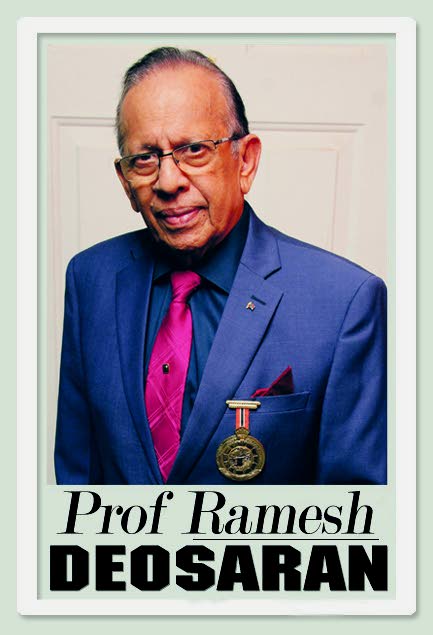Recall councillors who fail

It is now reasonable for the electorate whether from those who voted (34 per cent) or those who didn’t vote (66 per cent) in the 2019 local government elections to ask: given all the loudly headlined promises and apologies made by the politicians, will our local and central government services improve?
After all, the campaign was as much on local as on national issues. How then to get 141 new councillors to do their ground-level job efficiently and effectively? What sanctions can be applied? Four years is too long to wait.
For example, letter-writer WKS Hosein, like so many others, asked last Thursday: “Why is it these (local government) candidates of the various parties are so visible at this time but after being elected the successful candidates become invisible?”
Worse yet, councillors remain unaccountable for their low or non- performance. Are our citizens voting in another “cat-in-bag” election tomorrow? There should be sanctions from either party leaders or municipal corporation legislation for non-performance. No wonder 66 per cent didn’t vote. We cannot continue hearing that “local government is a waste of time.”
Given the many promises and accusations made, who is the visionary leader, Dr Keith Rowley or UNC leader Ms Kamla Persad-Bissessar, with the courage to support a “councillor recall” law for non-performing councillors? Which political leader has the courage to demand party accountability from the councillors they put upon us? Given frequent absenteeism and free-wheeling non-performance by councillors, which leader is now brave enough to apply the party discipline required?

Even have them resign. The councillor-citizen disconnect is legendary. Four years is too long to wait.
The time to consider recalling failed councillors is here. In any local government constituency, 20 per cent or more of the votes he or she got in the last election should be justifiable for a signed petition for recall. (Aldermen are a democratic anomaly. MPs are another story.)
A referendum should then be held by the Elections and Boundaries Commission. The councillor could explain. Rather than giving more power to councillors only, empower citizens: give them some power to control their councillors for effective and efficient services. Four years is too long for citizens to tolerate non-performance and statutory neglect for ground-level services.
The new powers given to councillors, political as they are, will not work transparently and fairly. Party politics will protect non-performers and discrimination in services. There is no statutory compulsion – even when councillors take an oath. Empower the people, not only the politicians. Experience shows that politician-led town hall meetings – grand talk-shops – do not work for citizens.
Instead, give the people some power over their councillors. Use the referendum. That would really be the fundamental reform required. Inspire citizens to vote. And press local government to work.
Take an example: Champs Fleurs district under San Juan/Laventille Municipal Corporation – and the oath of office taken. Councillors swear: “I solemnly and sincerely declare and affirm that I will undertake the duties of councillor in the best interests of the people of Champ Fleurs of the San Juan/Laventille Municipal Corporation and that I will faithfully and impartially carry out the functions, powers, authorities and directions.”
Why then so many citizens’ complaints? Why then the need to take the corporation to court for a collapsed drain? Why, with this “faithfully and impartially” oath, does the corporation disobey court order?

What does Dr Rowley have to say? And why is the Minister of Local Government not entering to heal the breaches as the law requires and save taxpayers’ money?
And many wonder why such a lawless country? It gets worse, even evil, when hate and political spite are applied.
Dr Rowley himself complained at his “conversation” that “there are too many people getting paid for a job that they do not do.”
Well, deal with it.
In another “conversation”, Dr Rowley advised a complaining citizen to appeal to the “Minister of Local Government and even to the government” for relief if the council fails to deliver.
Well, try that and see.
With the increased salaries and four-year tenure to new councillors, will performance and accountability really increase? And with what sanctions where required?
Come on, people, wake up. The Minister of Local Government and Rural Development must apply improved oversight and remedy where the municipal corporation fails in its statutory duties. Until then, the promises we hear will appear false and politically misleading through four years.
Citizens face too many broken secondary roads, collapsed drains, garbage pile-ups, old trucks and cars congesting streets, countless streets with no names, excessive noise, etc.
“It took courage,” wrote Selwyn Seelochan last week, “for the prime minister to apologise for the nation’s poor roads.”
Ok, this shows good intentions. So we wait and see how far such apology goes.
From day-to-day evidence, it seems that ministers, too, forget the oath of office they took. With Bible, Gita or Quran in hand, they promise: “I do swear that…I will conscientiously, impartially ….discharge my duties as minister and do right to all manner of people without fear or favour, affection or ill-will.”
Impartially? Without fear or favour?
Hmmm. Citizens are therefore entitled to ask: to what extent have ministers been living up to their sacred oath?
So with the promises made by the PM and Mr Faris Al-Rawi, will things with the regional corporations improve? Will non-performers be re-installed? Will there be any serious sanctions either from the party or new legislation to improve councillors’ performance and accountability? Recalling failing councillors will certainly help improve the functions of municipal corporations.


Comments
"Recall councillors who fail"